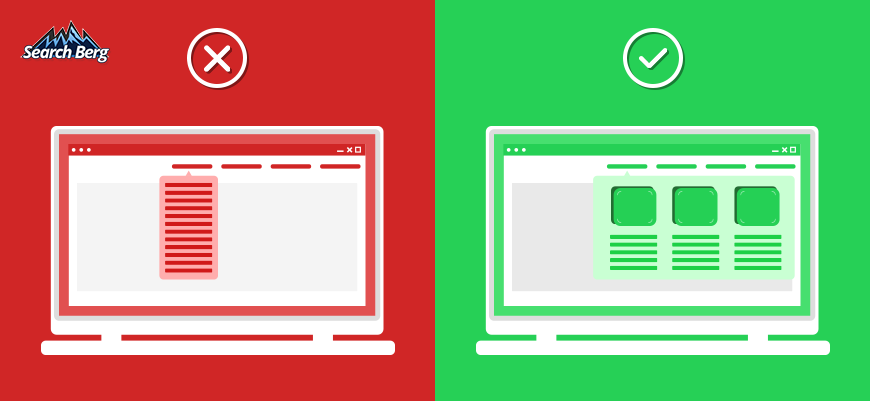6 Reasons Why You Need a Website Audit Today
Everything we buy undergoes a performance check at some point. Everything.
Cars are serviced routinely. HVAC systems undergo bi-annual performance checks. Clothing is given a quick once-over to see if it’s still in wearable condition. Tupperware is tossed in the bin if the stains start getting to you.
Perishable or not, tangible or not, everything should be checked for optimal performance at some point. Is it still providing value? Is it operating smoothly? How can you optimize its performance? These questions are critical and even more so within the context of your website.
If your site operates well, it’s all fine and dandy. However, if problems go undetected, they’ll bother your audience and the Google algorithm, so much so that you’ll lose sales, suffer a blow to your SERP rankings, and tarnish your brand identity.
A timely, comprehensive, and complete website audit will help you undo the damage and keep your site on track. In this blog, we’ll discuss five reasons why you need a website audit. How will it benefit your business? And what’s the right way to get started? Stick around; we’re breaking it all down.
What is a Website Audit?
A website audit is an in-depth analysis, evaluation, and investigation of your website. Your site will be scanned for weaknesses, strengths, and areas of improvement from a technical, structural, design, and SEO standpoint. During the audit, every aspect of your website will be thoroughly analyzed, including:
- Site structure
- Indexation
- Crawlability
- Site design
- Site speed
- Content
- Broken links, images, videos, etc.
- Site responsiveness
- Mobile-friendliness
- Keywords
- Title tags, headings, meta tags, canonical tags, URLs, alt attributes, etc.
- UI/UX
- Schema markup
- Traffic (organic, direct, referral, social, paid, etc.)
We’re just scratching the surface. By the end of the audit, you’ll have a good grasp of how well your site is performing. Is the Google algorithm happy with it? Is your audience content? The insights will help you improve your website’s current structure and health.
As the most powerful diagnostic tool for your website, an audit will give you much-needed clarity so you can get your site back on track and keep it on track. Once critical mistakes are fixed, you’ll manage to improve your SERP rankings, generate more traffic, increase sales, and improve your brand identity.
Now that you’re clear about the basics, let’s jump into why you need a website audit.
Reasons You Need Website Audit
If web users have trouble navigating your website, they won’t stick around. They’re not obligated to stick around. As a business, it’s your job to provide the best browsing experience possible to your audience. If you fail to do so, they’ll move on to the next site.
It’s important to note that you browse your site day in and day out, so much so that you’ve acclimatized to it. New users have not. Certain issues may not bother you because of just how familiar you are with your site, but they’ll definitely get under your audience’s skin.
Your audit will reveal problems like:
1.1. Cluttering

You don’t have to list every service in the top menu. This will result in cluttered navigation and frustrate your audience. Instead, compartmentalize sections and place them in dropdowns accordingly.
Your site should be easy to navigate, not overwhelming. Keep it simple and minimize the number of tabs in the top menu.
1.2. Unconventionality
Who doesn’t like to stand out? Unfortunately, going against the grain isn’t always the best approach. You may think your approach is unique, but people are used to things a certain way, especially when it comes to web design. If you make big changes, your audience will feel disoriented.
An audit will help you understand how much damage unconventional web design is causing. Perhaps your navigation bar is vertical, not horizontal. Or maybe you’ve switched up the placement of the navigation bar and search box.Small changes like this may look great to you, but they can frustrate new users. Practicality is often more important than creativity.
1.3. Misusage
Certain on-page elements are very easy to misuse, e.g., dropdown menus. When used correctly, they’re extremely beneficial. However, multi-level dropdowns do more harm than good. If the menu keeps appearing when users move the mouse around the window, user experience is ruined. An audit will highlight such errors so you can improve site architecture.
1.4. Overlinking
If web users have to click more than three times to reach a page, they’ll get annoyed. Search engines are also less likely to crawl pages that cannot be easily reached. Avoid overlinking at all costs.
1.5. Overloading

If you overload your website with information, your audience will look for the nearest exit. Excessive text also dilutes useful information. An audit will help you understand the damage this is causing, especially to your bounce rate.
2. Your Website is Painfully Slow
As the world becomes increasingly fast-paced, people simply don’t have the time to wait for any task. They want speedy interactions and transactions, especially when it comes to web browsing.
If your site takes too long to load, you’ll lose your audience to your top competitors. Fast websites provide instant gratification and improve user experience, resulting in a low bounce rate and a high conversion rate.
According to Google, a one-second improvement in site speed can increase web conversions by 27%. This is astounding. We also know that Google’s ranking system takes site speed into account. If you run a fast site, you’ll rank higher on Google SERPs and get seen by more and more web users.
A website audit will give you a good idea of where you stand. Certain audits also compare site speed with that of your top competitors. This will give you an idea of how fast your website should be.
You’ll have to make significant changes, starting with page weight reduction. If your website has to load too many resources, the overall speed will be affected. Heavy video content, large JavaScript files, high-resolution images, heavy CSS files, and other types of bulky media add a lot of weight to websites, resulting in a higher load time.
Switch to small file sizes to enjoy fast pages. We also recommend using a CDN, switching to a faster host, reducing the number of plugins, reducing redirects, caching your webpages, and using Gzip for file compression.
These are just a handful of the many strategies you’ll have to implement. A complete website audit will give you a better understanding of how you should proceed.
3.Your WebCopy and ContentRequire Work
Web copy refers to the text on your home page, product/service pages, about page, contact page, and other pages across your site (excluding the blog page). Web content refers to articles, blogs, infographics, guest posts, and other types of non-essential content. While web copy is essential for your website, web content is optional.
People often think that a website audit only reveals technical shortcomings. This isn’t true. Your audit will also reveal content weaknesses.
For starters, your web copy and content will be thoroughly analyzed for correctness, comprehensibility, grammar, punctuation, spelling, syntax, and vocabulary. Moreover, their relevance, engagement, and uniqueness will be evaluated.
At Search Berg, we dig deeper. Our content audit experts also check elements like title tags, meta descriptions, headers, keywords, external and internal links, and CTAs.
The audit will reveal how your audience reacts to your web copy and content. Are they staying on your site? Are they clicking on the hyperlinks? Or are they clicking off your site? This insight will help you demarcate between high-performing and low-performing copy and content, make the right changes, and increase audience retention.
Recommended Read: A Beginner’s Guide to Optimizing Web Content for Better Reach and Conversions
4. Your Website is Poorly Optimized
Stellar optimization is your golden ticket to impressive rankings. High rankings result in greater traffic, high conversions, and enviable sales. If you start ranking among the top three search results for industry-specific keywords, you’ve hit the jackpot.However, if your site is poorly optimized, you’re inadvertently holding yourself back from climbing SERPs.
A complete SEO audit will reveal cracks in the foundation. Are you using the right keywords? Are your images optimized with filename and alt attributes? Are your pages indexable? Are you using enough internal and external links? At Search Berg, we answer these questions (and then some) to determine if your site is properly optimized.
Before you begin, use Google Ads to check your optimization score. This will give you a very basic understanding of where you stand. Google’s optimization score is calculated in real-time based on your site’s recent performance. However, it’s not as comprehensive as advanced website audits. This is a great starting point for small businesses. However, you should eventually work your way towards a robust, full-scale audit that covers everything, not just one or two elements.
5.You Want to Benchmark Your Website Against Your Top Competitors

Every industry has a handful of top players. If you want to understand how your website compares to their domains, an audit will reveal extremely useful insights.
Many businesses use a website audit as a makeshift competitor analysis tool. Ask your website audit team to collect critical on-page SEO data for your top competitors. Focus on all the aspects we discussed earlier.
Use this information to determine how well or poorly your site is performing in comparison. This serves as an excellent reality check for businesses that may think they’re on track. If your competitors are doing much, much better than you, there’s potential for you to reach the same level.
An audit will help you restructure your site and touch the same zenith that your competitors have summited time and time again.
Let’s Roll out the Grand Audit!
In this blog, we highlighted fivereasons why you need a website audit in 2023. Now that you have a good grasp of the importance of a well-timed, comprehensive, and complete website audit, it’s time to get to work!
At Search Berg, we specialize in performing on-page SEO audits and standalonebacklink audits. If you want a complete A–Z analysis of your site, opt for our SEO audit. However, if you specifically want to rework your link building strategy, sign up for our backlink audit.
Let’s dig through your site, identify the cracks, and start sealing them with our SEO epoxy! As one of the leading digital marketing agencies across the nation, we utilize our experience, expertise, advanced tools, and AI-powered software to achieve excellent results. We’re ready when you are!











